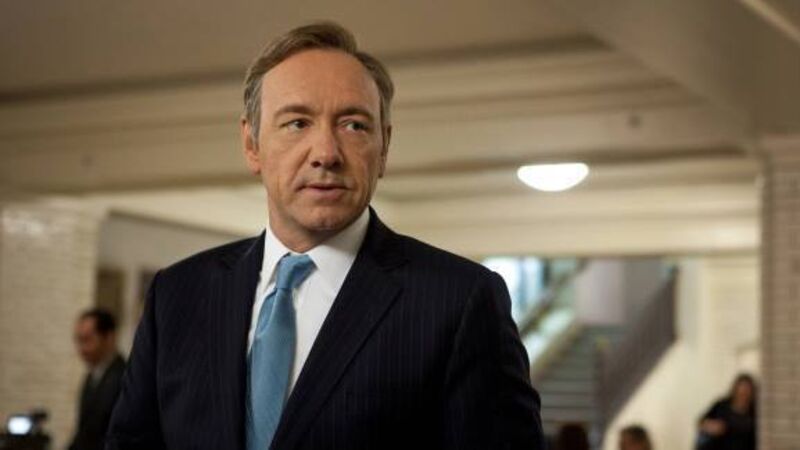Kevin Spacey shares the acting secrets behind House of Cards

KEVIN SPACEY walks into the room wearing a crisp, navy suit and an implacable expression.
It feels like I’m in the presence of Frank Underwood, the ruthless politician he plays in House of Cards.











